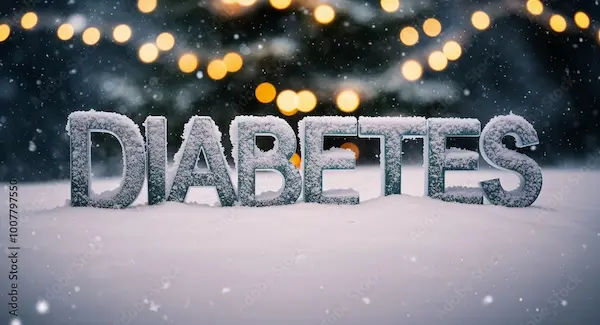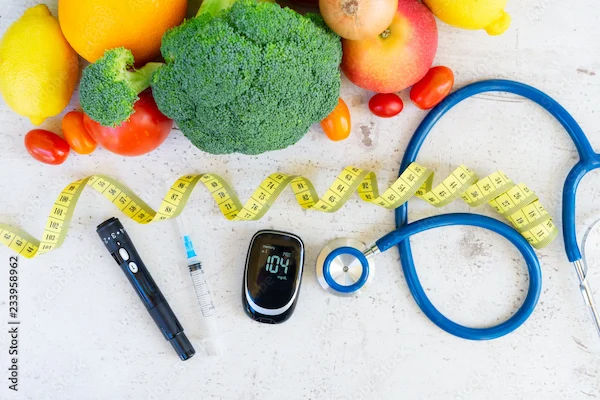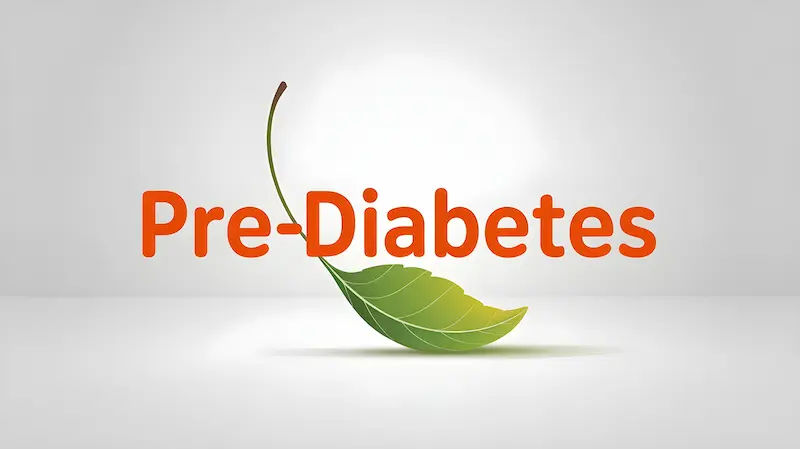Type 2 Diabetes: Causes and Symptoms
Learn about the causes and symptoms of type 2 diabetes. Understand risk factors, early signs, and how it affects overall health.

Written by Dr. M L Ezhilarasan
Reviewed by Dr. Shaik Abdul Kalam MD (Physician)
Last updated on 13th Jan, 2026
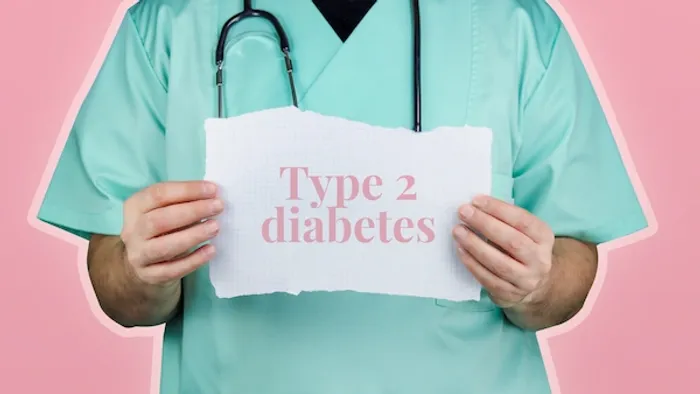
Introduction
Type 2 diabetes is a global health challenge, affecting millions of adults. What’s more startling is that a significant number of people live with it for years without knowing, as the early signs can be subtle and easily dismissed. This chronic condition, characterised by high blood sugar levels due to insulin resistance, doesn’t appear overnight. It’s the result of a complex interplay of factors that develop over time. Understanding what leads to type 2 diabetes is the first and most powerful step toward prevention and early intervention. This article will break down the eight key causes, explain how they trigger the tell-tale signs, and guide you on when to take action.
Understanding the Engine Trouble: What is Type 2 Diabetes?
Before diving into the causes, it's crucial to understand the basic mechanics of the condition. Think of your body as a car and glucose (sugar) as its fuel. For this fuel to enter your cells and provide energy, it needs a key. That key is insulin, a hormone produced by your pancreas.
The Role of Insulin and Glucose
When you eat, carbohydrates are broken down into glucose and released into your bloodstream. Your pancreas responds by releasing insulin. Insulin binds to receptors on your cells, effectively "unlocking the door" to allow glucose to enter and be used for energy.
Insulin Resistance: The Core Problem
In type 2 diabetes, this system breaks down. Your cells become resistant to the effects of insulin. The key no longer fits the lock properly. In response, your pancreas works overtime to produce even more insulin to force the glucose into the cells. Eventually, the pancreas can't keep up, insulin production drops, and glucose builds up in the bloodstream. This state of high blood sugar (hyperglycaemia) is what defines diabetes and leads to the various symptoms and complications.
Consult a Diabetologist for the best advice
The 8 Primary Drivers: What Leads to Type 2 Diabetes?
The journey to insulin resistance is paved by several factors, some within your control and others not.
1. Genetics and Family History
Your genetic blueprint plays a significant role. If you have a parent or sibling with type 2 diabetes, your risk increases. This doesn't mean it's your destiny, but it means you should be more vigilant about the modifiable risk factors listed below.
2. Excess Weight and Body Fat Distribution
This is one of the most significant risk factors. Being overweight or obese, particularly with excess fat around the abdomen (an "apple" shape), dramatically increases your risk of developing insulin resistance.
The Critical Link: Visceral Fat and Insulin Resistance
Not all fat is created equal. Visceral fat, the deep fat that surrounds your abdominal organs, is highly metabolically active. It releases fatty acids and inflammatory proteins (adipokines) that interfere with insulin's ability to function properly, directly promoting insulin resistance.
3. Physical Inactivity: A Modern Lifestyle Risk
A sedentary lifestyle is a major contributor. Muscles are major consumers of glucose. When you are inactive, muscles don't use glucose effectively, which can lead to higher blood sugar levels. Exercise makes your cells more sensitive to insulin, countering resistance.
4. The Precursor: Prediabetes
Prediabetes is a condition where blood sugar levels are higher than normal but not yet high enough to be diagnosed as type 2 diabetes. It's a clear warning sign that your body's glucose metabolism is impaired. Without intervention, prediabetes often progresses to full-blown diabetes.
5. Age and Associated Risk Factors
The risk of type 2 diabetes increases as you age, particularly after 45. This is often linked to losing muscle mass, becoming less active, and gaining weight as you get older.
6. Polycystic Ovary Syndrome (PCOS)
PCOS is a common condition in women characterised by hormonal imbalance. It is strongly linked to insulin resistance and is a significant risk factor for developing type 2 diabetes.
7. Unhealthy Dietary Patterns
A diet high in processed foods, refined carbohydrates, unhealthy fats, and sugar-sweetened beverages contributes to weight gain and can spike your blood sugar, putting constant strain on your pancreas.
The Impact of Sugar-Sweetened Beverages
Sodas, sweet teas, and energy drinks are particularly problematic. They deliver a massive, rapid dose of sugar that floods the bloodstream, demanding a sudden and large insulin response, which can accelerate the path to insulin resistance over time.
8. Sleep Problems and High Stress Levels
Chronic sleep deprivation, sleep apnoea, and long-term stress can increase the body's production of cortisol, the "stress hormone." Elevated cortisol levels can raise blood glucose and contribute to insulin resistance.
Listening to Your Body: Recognising the Early Signs and Symptoms
The causes listed above slowly manifest as physical signs. Recognising these symptoms of high blood sugar is critical for early diabetes diagnosis.
The Classic Triad: Thirst, Urination, and Hunger
- Frequent Urination (Polyuria): Your kidneys try to filter out the excess sugar from your blood, pulling more water from your tissues and leading to increased urination.
- Increased Thirst (Polydipsia): Due to the fluid loss from frequent urination, you become dehydrated and feel constantly thirsty.
- Increased Hunger (Polyphagia): Because insulin isn't moving glucose into your cells, your muscles and organs are starved for energy. This triggers intense hunger.
Beyond the Basics: Fatigue, Blurred Vision, and Slow Healing
- Fatigue: Persistent tiredness occurs because your body's cells are deprived of their primary energy source (glucose).
- Blurred Vision: High blood sugar can cause fluid to be pulled from the lenses of your eyes, affecting their ability to focus.
- Slow-Healing Sores: Elevated blood sugar can impair blood flow and damage nerves, making it harder for your body to heal cuts and bruises.
- Tingling or Numbness: Similar to slow healing, nerve damage (neuropathy) can cause a tingling or numb sensation, often in the hands and feet.
- Recurring Infections: High glucose levels can weaken the immune system, leading to frequent infections, such as gum, skin, or vaginal infections.
When to See a Doctor: Connecting Causes to Symptoms
If you identify with several of the risk factors and are experiencing one or more of these early signs of insulin resistance, it is time to consult a professional. A simple blood test can provide clarity.
Get Your Health Assessed
Conclusion
Understanding what leads to type 2 diabetes empowers you to take charge of your health. This condition is not an inevitable fate but often a consequence of modifiable lifestyle factors that develop over years. By recognising the eight key drivers from genetics and weight to diet and activity levels you can identify your personal risk profile. More importantly, by learning to spot the early signs like unquenchable thirst and persistent fatigue, you can seek help early. Remember, proactive steps today can lead to a healthier, more vibrant tomorrow.
Consult a Diabetologist for the best advice
Consult a Diabetologist for the best advice

Dr. Tanmaya Kumar Sahu
General Physician/ Internal Medicine Specialist
12 Years • MBBS, MD ( Internal Medicine )
Bhubaneswar
Apollo Hospitals Old Sainik School Road, Bhubaneswar
(25+ Patients)

Dr. Vivek D
General Physician
4 Years • MBBS
Bengaluru
PRESTIGE SHANTHINIKETAN - SOCIETY CLINIC, Bengaluru

Dr. Zulkarnain
General Physician
2 Years • MBBS, PGDM, FFM
Bengaluru
PRESTIGE SHANTHINIKETAN - SOCIETY CLINIC, Bengaluru
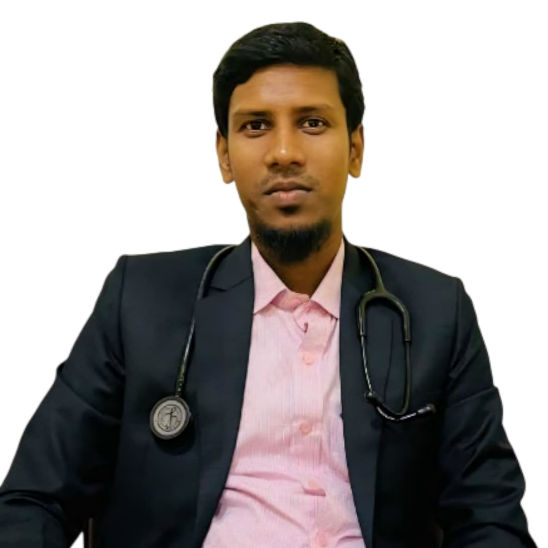
Dr. Arif Ahmed
General Physician/ Internal Medicine Specialist
9 Years • MBBS, MD (Genl. Med.)
Kolkata
MCR SUPER SPECIALITY POLY CLINIC & PATHOLOGY, Kolkata

Dr. Swaroopa Rani
General Physician/ Internal Medicine Specialist
9 Years • MBBS, MD (Internal Medicine)
Bengaluru
Apollo Medical Center, Marathahalli, Bengaluru
Consult a Diabetologist for the best advice

Dr. Tanmaya Kumar Sahu
General Physician/ Internal Medicine Specialist
12 Years • MBBS, MD ( Internal Medicine )
Bhubaneswar
Apollo Hospitals Old Sainik School Road, Bhubaneswar
(25+ Patients)

Dr. Vivek D
General Physician
4 Years • MBBS
Bengaluru
PRESTIGE SHANTHINIKETAN - SOCIETY CLINIC, Bengaluru

Dr. Zulkarnain
General Physician
2 Years • MBBS, PGDM, FFM
Bengaluru
PRESTIGE SHANTHINIKETAN - SOCIETY CLINIC, Bengaluru

Dr. Arif Ahmed
General Physician/ Internal Medicine Specialist
9 Years • MBBS, MD (Genl. Med.)
Kolkata
MCR SUPER SPECIALITY POLY CLINIC & PATHOLOGY, Kolkata

Dr. Swaroopa Rani
General Physician/ Internal Medicine Specialist
9 Years • MBBS, MD (Internal Medicine)
Bengaluru
Apollo Medical Center, Marathahalli, Bengaluru
More articles from Diabetes
Frequently Asked Questions
Can type 2 diabetes be reversed?
While there's no official 'cure,' type 2 diabetes can be put into remission. This means achieving and maintaining normal blood sugar levels without the need for diabetes medication. This is most commonly achieved through significant, sustained weight loss, often via dietary changes and exercise.
What's the difference between type 1 and type 2 diabetes?
Type 1 diabetes is an autoimmune condition where the body's immune system attacks and destroys the insulin-producing cells in the pancreas. It is not preventable and is usually diagnosed in childhood. Type 2 diabetes is primarily linked to lifestyle and genetics and involves insulin resistance.
I have a family history of diabetes. What should I do?
Focus on the factors you can control. Maintain a healthy weight, engage in at least 150 minutes of moderate exercise per week, adopt a balanced diet rich in whole foods and fiber, and avoid sugary drinks. Regular check-ups to monitor your blood sugar levels are also essential.
How often should I get tested for diabetes?
If you are over 45, have prediabetes, or have any other risk factors (like obesity or family history), you should be tested at least once a year. Your doctor can advise on the best testing schedule for you.
Are the symptoms of type 2 diabetes different in men and women?
The core symptoms are largely the same. However, women may experience additional signs related to reproductive health, such as recurrent vaginal yeast infections or urinary tract infections, as a result of high blood sugar levels.

